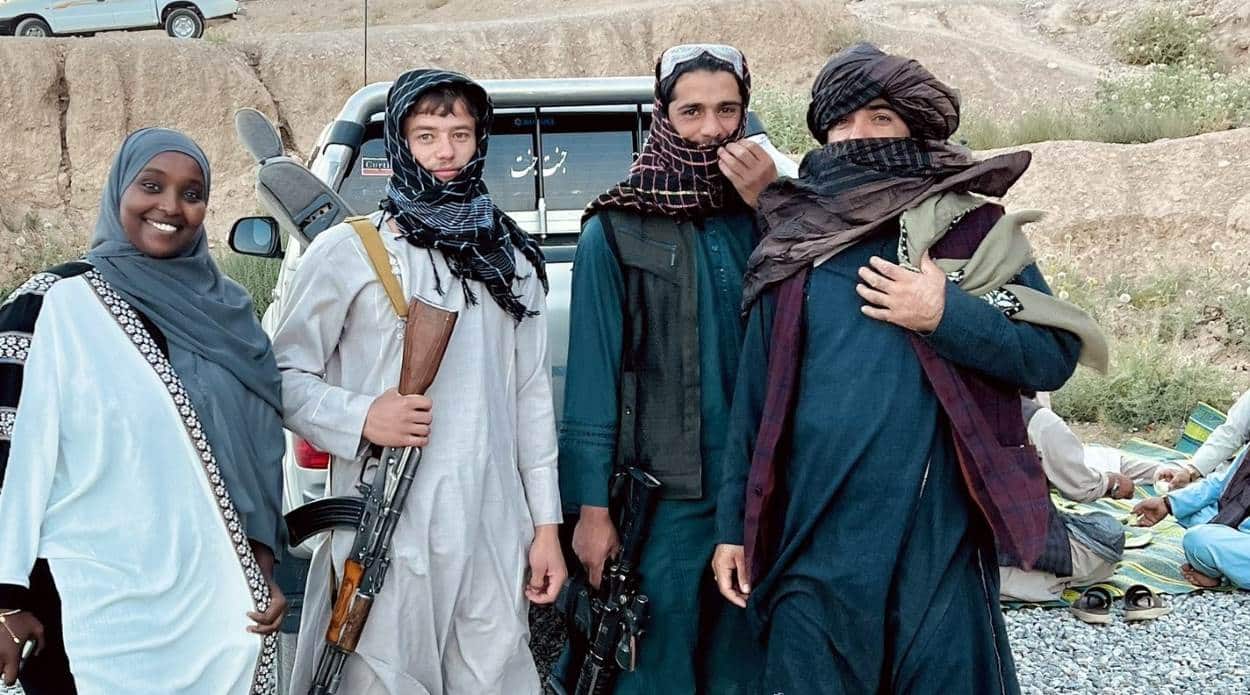Travel influencer Marian Abdi, known online as Geenyada Madow, has been severely criticized for her actions during a visit to Afghanistan.
The backlash started when Abdi, a Somali American, expressed excitement on Instagram about her trip, calling it a “dream come true.” On August 13, she posted a photo of herself and captioned it, “This country is recovering from 40 years of war and turmoil. Over the next few days, I will share my experiences here in Afghanistan, including insights into the people, the food, and the overall culture.”
However, the situation escalated after Abdi posted a photo on X, formerly known as Twitter, where she appeared smiling alongside Taliban members armed with AK-47s. This post drew intense scrutiny, especially from Afghan women and activists who questioned whether Abdi had addressed the Taliban’s oppressive treatment of women, including their exclusion from education and harsh punishments like stoning.
Critics argue that her posts overlook the severe oppression Afghan women endure under Taliban rule. Niloofar Naeimi, a human rights activist, stated, “It is deeply troubling and unacceptable to see someone like Geenyada Madow, who has gone to Afghanistan and lobbies for the Taliban, disregarding the suffering and pain of millions of Afghan women.”
In response to the outrage, Abdi defended her actions on X, stating, “I asked for a photo, I took it with them, I posted it on Twitter, and now there’s just outrage – people are going crazy, [saying] ‘Shame on you, you’re against women’s rights, women’s education, women’s jobs.’ That’s not the case – this photo was just to say this is my experience, what I saw, and how they treated me.”
In a YouTube video, Abdi shared details from her encounter with Taliban fighters, describing her nervousness and confirming that the fighters did not permit her to record their conversation. She recounted her questions about the denial of education to Afghan girls and noted that the fighters suggested that changes might occur over time.
Despite her intentions, Abdi’s actions have ignited a broader conversation about the portrayal of life under the Taliban and the responsibilities of influencers in conflict zones. This situation highlights the complexities of cultural sensitivity and the influence of social media on public perceptions, particularly concerning critical human rights issues.






